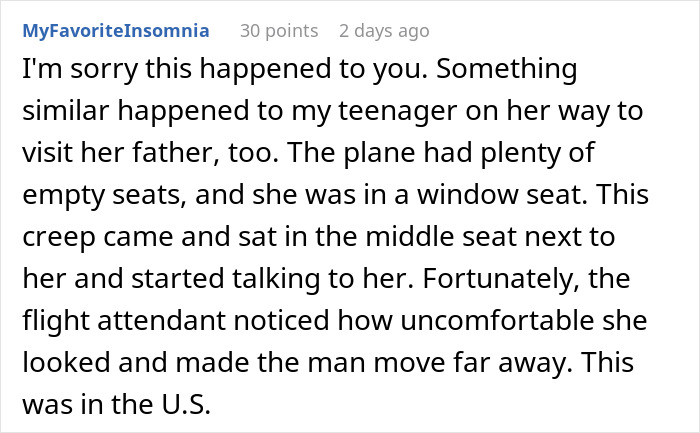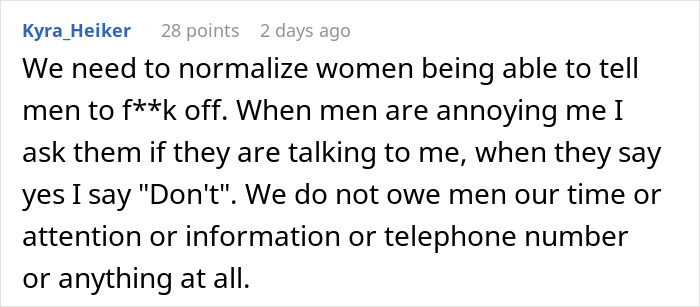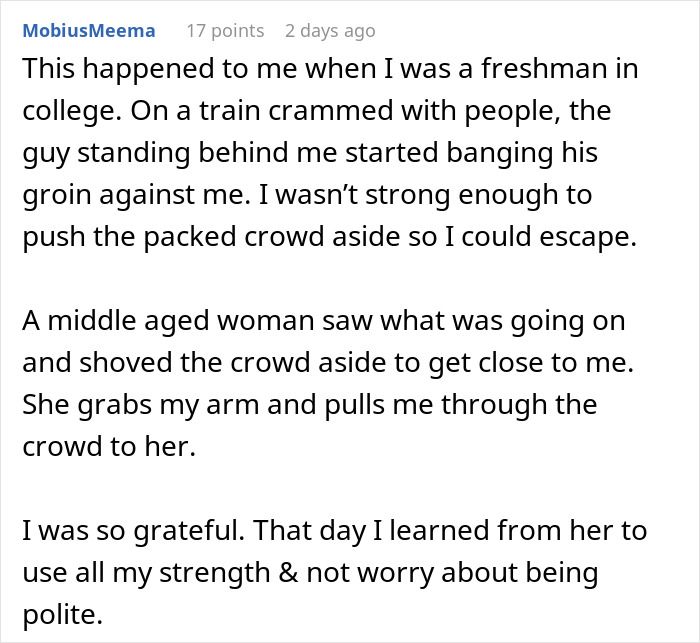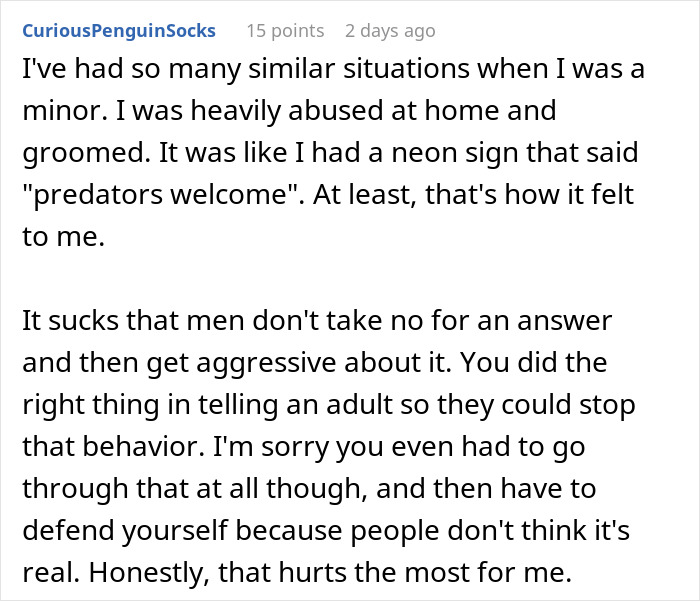From navigating busy security lines to dealing with delays and cancellations, air travel can involve a lot of stress even before you board the plane. But sometimes the challenges don’t end at the airport; they can persist throughout the journey.
When Reddit user Softestlilbab was sixteen years old and flying to meet her dad, she ended up sitting in a row with a stranger who got increasingly interested in her as the trip went on. Learning that the girl was a minor didn’t stop him either.
As the woman explained on the subreddit ‘Entitled People,’ eventually, it got so bad that the only way she thought she could get out of the uncomfortable situation was to report the man to the crew. So she did.
This teenager was traveling alone, so her dad booked her an extra seat

Image credits: nateemee / envatoelements (not the actual photo)
But that didn’t stop a creepy man from hitting on the minor
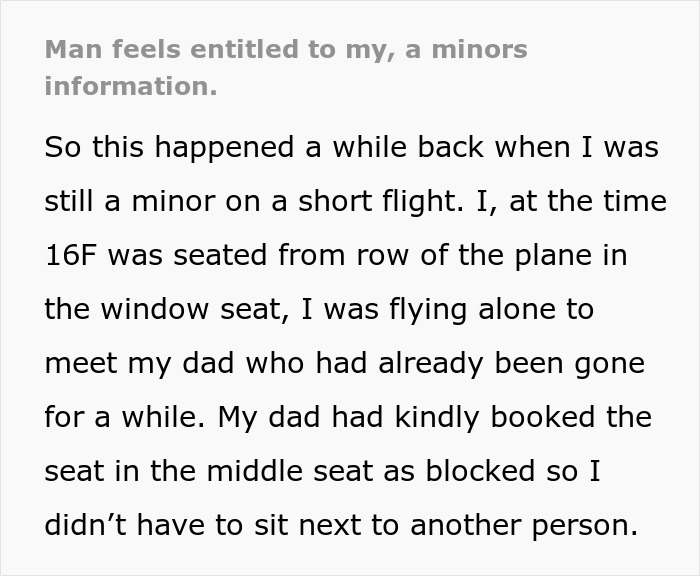
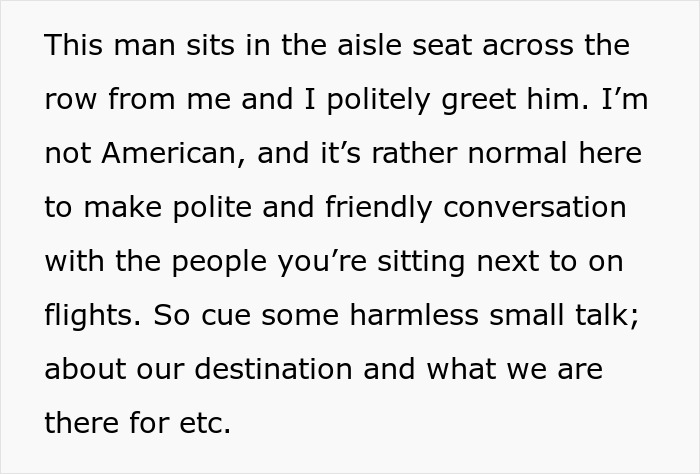

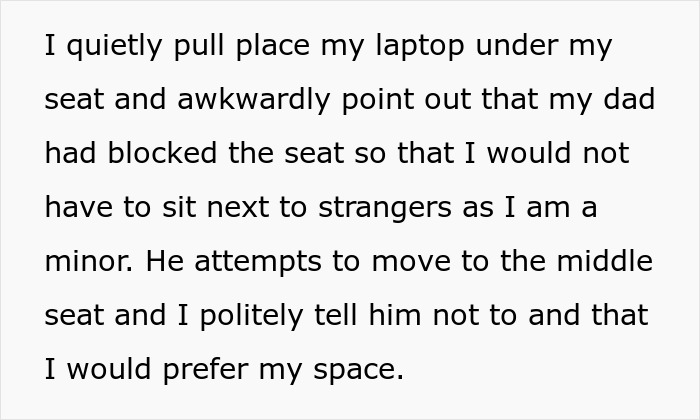
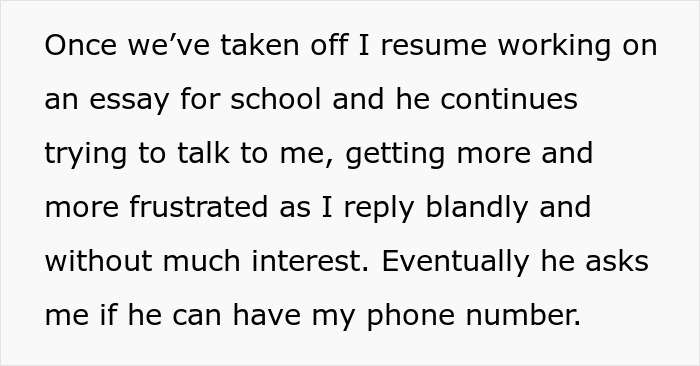
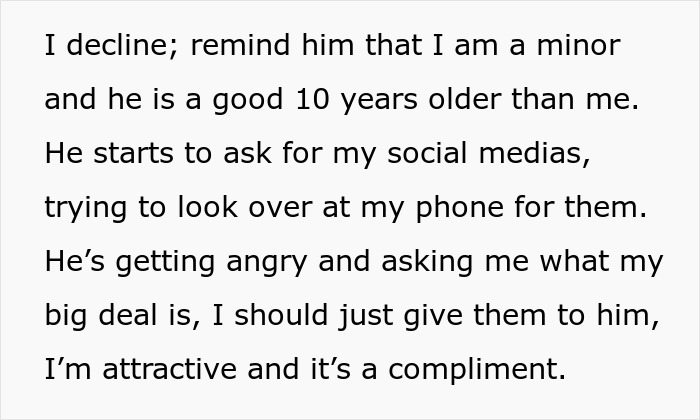

Image credits: travnikovstudio / envatoelements (not the actual photo)
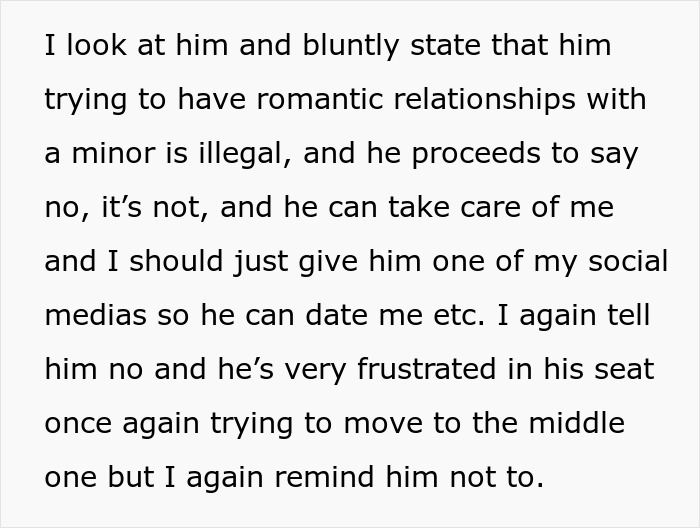
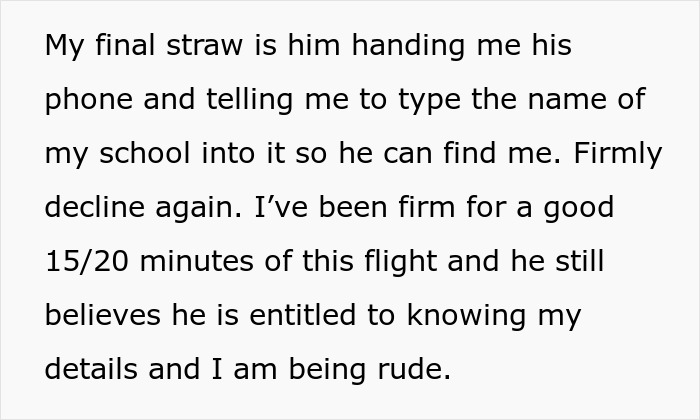


Image credits: svitlanah / envatoelements (not the actual photo)


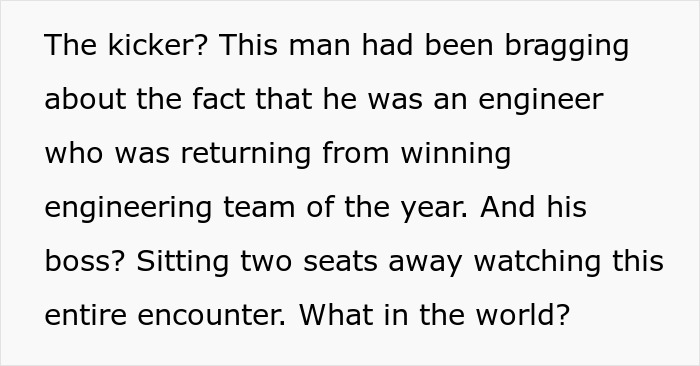
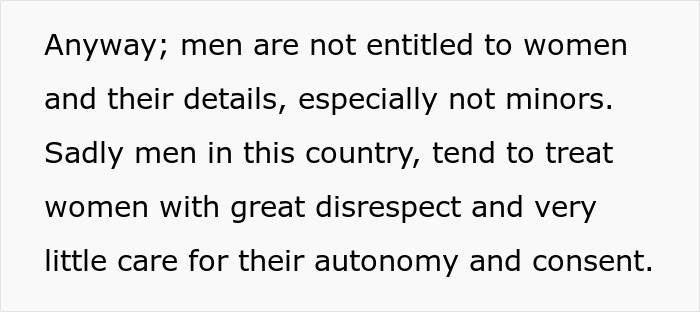
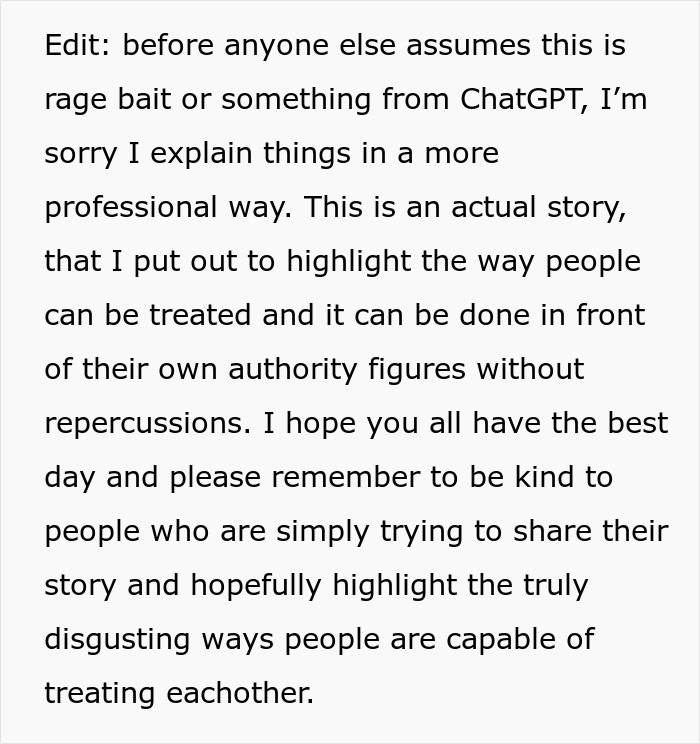
Image credits: Softestlilbab
Sadly, unsolicited male attention is part of growing up for many young women

Image credits: Karolina Kaboompics / pexels (not the actual photo)
This incident is indicative of a broader problem. Moira Donegan, who is a writer in residence for the Clayman Institute, where she, among many things, teaches a class in feminist, gender, and sexuality studies, says that for too many girls, teenage years are a time of unwanted attention from older men.
“Male attention creeps in at the edges of a young girl’s consciousness before she quite knows what it means,” she explains. “For my own part, I have a vivid memory of my mother dragging me out of a corner store after a man had been following me up and down the aisles; I was maybe 12.”
“Before that, a different man once approached me in a bookstore, where I was hunched over a book about a girl wizard, and asked if I wanted to take a walk with him. I was nine.”
“Neither of these men had been confused about my age: once I had been accompanied by my mother, the other time I was sitting in the children’s section of a bookstore,” Donegan adds. “My youth wasn’t a deterrent to their sexual attention, but rather part of its appeal: it signaled ignorance, naivety, and insecurity, the kinds of things that men like in women because they make us easier to control.”
According to Donegan, by her teens, comments and approaches from grown men had become a regular part of being in public. “The message that all of this sends to young girls is that womanhood is a state that consists largely of receiving unsolicited male attention, much of it benign but much of it threatening, exploitative or hostile, and that their ownership over their own bodies, their ability to peacefully occupy public space, and their right to be perceived as the children that they are can all be abridged by the whims of a man’s desire.”
Clinical mental health counselor Lisa Leshaw agrees. She says that we live in a society that is obsessed with physicality, and the objectification of girls that stems from it can have dire long-term consequences on their self-esteem.
She says that we cannot minimize these experiences and write them off as “part of life.” Instead, we need to send a clear message that their feelings are valid, the incident was not their fault, and their boundaries deserve respect.
As the story went viral, its author joined the discussion in the comments

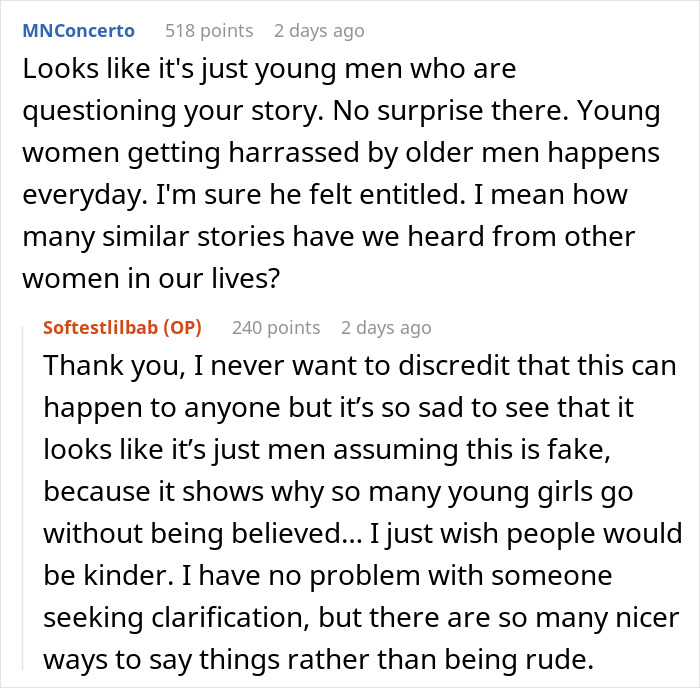


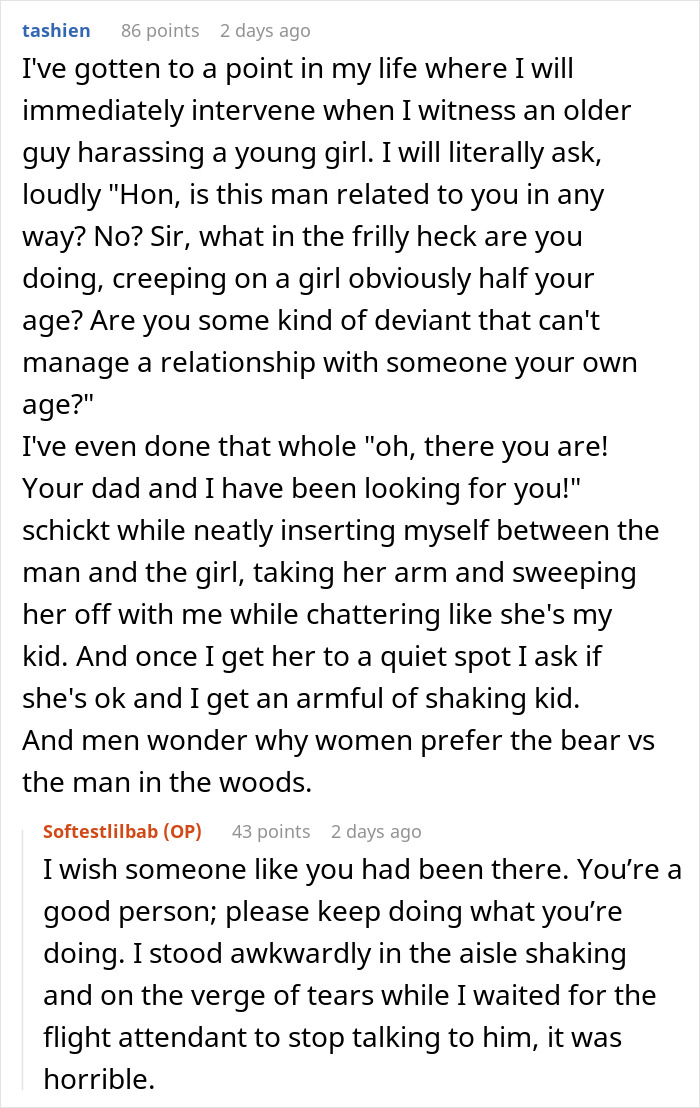




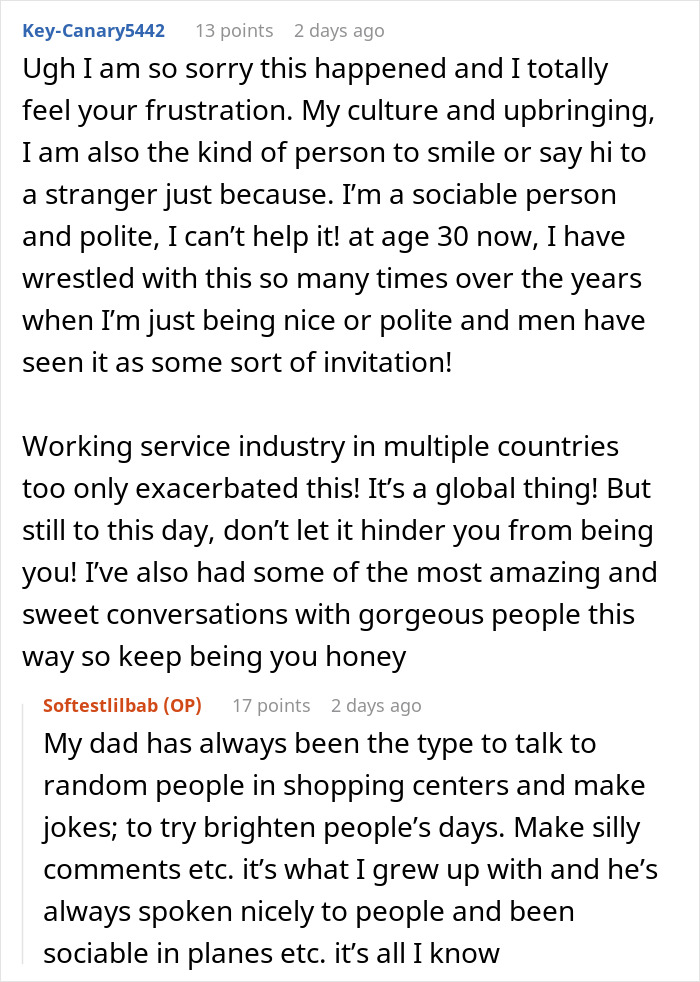
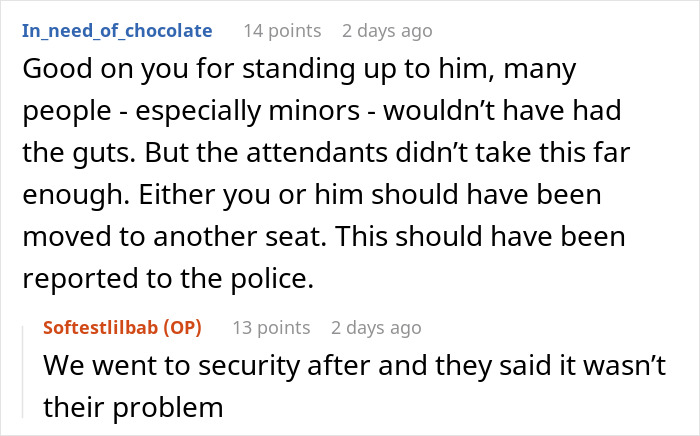
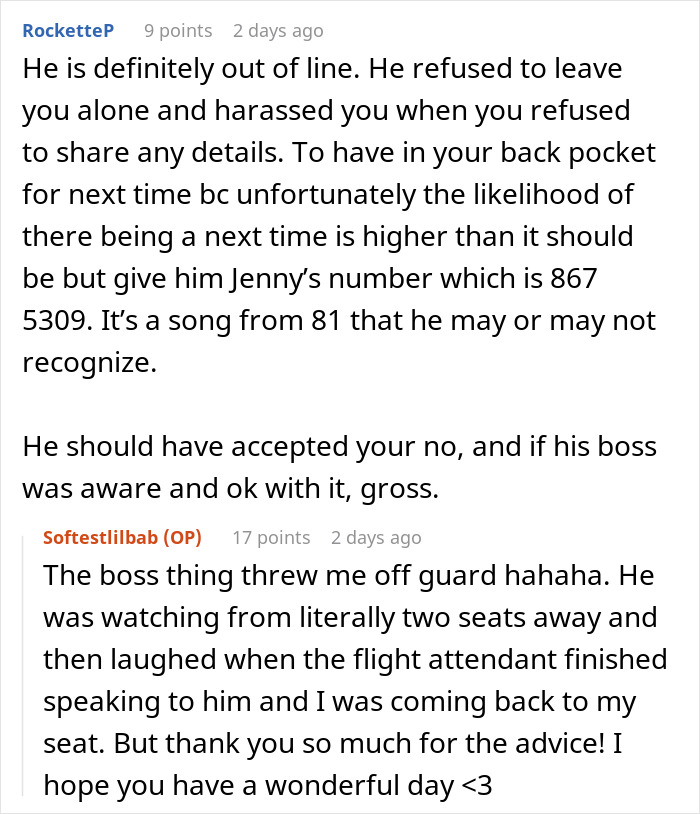



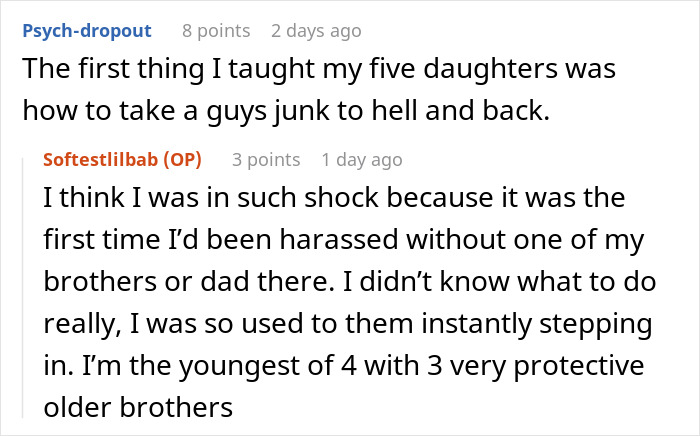
People were glad that this time, everything ended well


